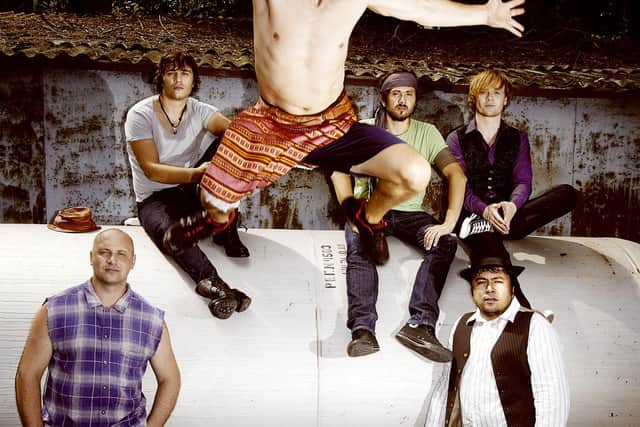Ukraine-Russia: Why the Moldovan Eurovision entry has caused controversy
Now the Eurovision singers, who captured the imagination of the public vote in Saturday’s final, with their upbeat, wacky performance of Trenulețul, are finding themselves at the centre of a political row between the pro-Russian and pro-West factions within the country.
Moldova has recently become the focus of fears that it could be next in Russia's sights. The country was part of the Soviet Union, although most people speak Romanian. Within its borders is a breakaway self declared pro-Russian republic Transnistria.
Advertisement
Hide AdAdvertisement
Hide AdIts politics has been a long-running battle between pro-Russia and pro-West, with the discussion of unification with European Union member Romania rearing its head from time to time.


Russian officials have started to parrot the narrative that Russian speakers in Moldova are facing discrimination, mirroring the narrative it peddled ahead of its invasion of Ukraine. A series of explosions in Transnistria a few weeks ago sparked speculation of unrest in the region, where Russia already has troops on the ground.
Moldova’s pro-western government led by President Maia Sandu has taken initial steps towards European Union membership.
Now the Eurovision Song Contest, for which the song was selected before the Russian invasion of Ukraine, has seen the band – one of the biggest in the Romanian-speaking world since the 1990s – quizzed over the lyrics.
Released in December last year, it was the promotional song for the reopening of the rail connection between Moldovan capital Chișinău and Romanian capital Bucharest.
Back then, it was already criticised for seeming to promote a unification of Romania and Moldova.
"What’s the country? Where to start? An old country, a new country. It’s like one, it’s like two. Both apart, both together. It’s like two, it’s like one,” the Romanian lyrics say, before the catchy chorus kicks in, ending “Chișinău to București!”
Zdob și Zdub lead singer Roman Iagupov, who was born in Volgograd, Russia, and raised in Chișinău with a Moldovan mother, has insisted the song is actually about “the wild train on which musicians travel their whole lives with their songs”.
Listeners, however, have interpreted it differently.
Advertisement
Hide AdAdvertisement
Hide Ad"Chișinău to București,” one man wrote in a comment underneath the band’s YouTube video, attracting 1,400 likes. “Two Romanian hearts”.
Most of Moldovan territory was a part of the Principality of Moldavia from the 14th century until 1812, when it was ceded to the Russian Empire by the Ottoman Empire.
After a number of back-and-forth changes over the following decades, in 1940, Romania, which then had control of the region, was forced to hand over Bessarabia and Northern Bukovina to the Soviet Union as a consequence of the Molotov–Ribbentrop Pact.
This led to the creation of the Moldavian Soviet Socialist Republic. In 1991, following the break up of the Soviet Union, the Moldavian SSR declared independence and took the name Moldova.
Zdob și Zdub has performed at Eurovision twice before. In 2005, the group finished sixth overall in the country’s most successful result until 2017 and still their second-best overall. They also scored well in 2011.
Comments
Want to join the conversation? Please or to comment on this article.
